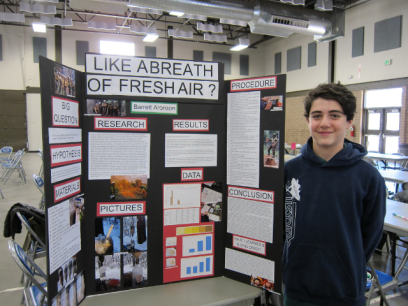Story
Hands-on Activities You Can Do (At Home and At Work) to Help the Environment

When you think about how you engage with the environment—the land, the air, and the water—do you wish you could do more to protect it? Try adopting some of these simple, hands-on tips you can do with your family or your employees/co-workers to make a positive difference in the environment.
- Get a bright idea! Take a page from the National Hockey League playbook by learning how to bring energy efficiency strategies into your home or workplace. For example, according to the US Department of Energy, you can save $45 every year by replacing the five most frequently used light bulbs in your home with ENERGY STAR-rated bulbs. These energy-efficient bulbs use 75 % less energy and last 10-25 times longer than traditional incandescent light bulbs.
- Compost! Turn your yard waste and food scraps into organic “black gold” by learning how to compost. You can add this rich, organic material to gardens to help plants grow. According to the Environmental Protection Agency (EPA), food scraps and yard waste make up about 30% of what we throw away.
- Work together. Organize a team-building activity with co-workers to pick up trash at a local park. Litter can have a harmful impact on plants, damage the ecosystem, and threaten wildlife by causing entanglement or ingestion. Grab our tip sheet to help you plan and promote the clean-up, including a list of what you’ll need.
- Reduce water pollution. The EPA points out that a lot of water pollution is caused by rainfall or snowmelt runoff that picks up pollutants, carries them away, and deposits them into bodies of water. Do your part to protect your local water system. How? Instead of sweeping leaves or grass clippings into the street (where they’ll eventually end up in storm drains), use them as mulch in your garden. Clean up after your pet. Make sure garbage cans have tight-fitting lid to keep trash out of the streets. Use lawn chemicals (like fertilizer and pesticides) sparingly.
- Take the lead. Step up to be the “eco-leader” at home and work. Educate your co-workers and your family on how to reduce waste and reuse what they currently have. Inspire them with encouraging words (and some good hard facts) about how their collective efforts make a positive difference in the world.
If you think your small act of protecting the planet doesn’t make a difference, think again! Don’t underestimate the power of collective impact.
Further Resources:
- Environmental Education at Home: A list of resources includes selected NEEF toolkits and activity guides for K-12 children that require minimal outdoor time.
- At-home Upcycle Projects: Celebrate environmental education with these easy upcycle projects you can do at home
Topics


